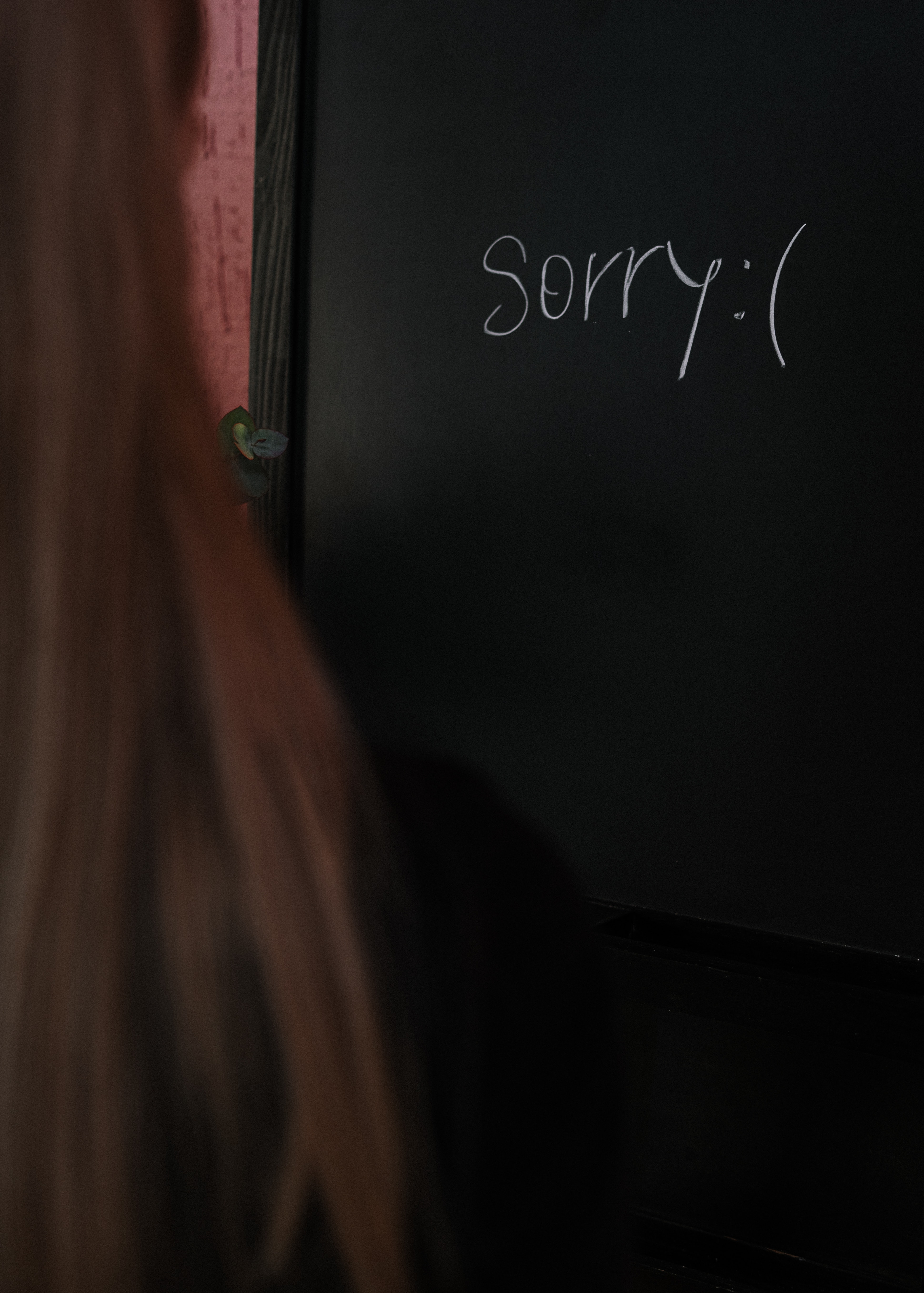Are You Making This Mistake That Can Cause Guilt & Self-Blame?
Sep 15, 2022
Today we want to share a story from a birthday lunch China attended a little while back.
The wife of the birthday "boy" had put so much thought and energy into ordering themed custom wine glasses and decorations, and booked reservations at a beautiful hotel. She also put together a thoughtful speech which she gave after he blew out the candles of a decadent red velvet birthday cake. (In case you're wondering it was as delicious 🎂)
Even though the event seemed to go perfectly and everyone appeared to be enjoying themselves the wife kept apologizing for things that were out of her control - such as the fact that it was an overcast day and that the restaurant's wood-fire pizza oven was out of commission that day.
She even apologized for messing up her speech (which no one but her had noticed!).
Even though the wife was clearly wanting everyone to have the best time, her worry and concern evident in her profuse apologies seemed to shift the focus from positive to negative, with everyone having to reassure her that things were fine.
The reason we bring this up is because she's not the only one who does this.
 Studies show that women in general tend to apologize much more than men do. So many women don’t even realize how often they overuse the word "sorry". When it was brought to the attention of women in a 2010 study published in Psychological Science, many justified their use of the word sorry because they said they wanted to avoid seeming bossy or rude.
Studies show that women in general tend to apologize much more than men do. So many women don’t even realize how often they overuse the word "sorry". When it was brought to the attention of women in a 2010 study published in Psychological Science, many justified their use of the word sorry because they said they wanted to avoid seeming bossy or rude.
The problem is that this isn't the case. Instead, saying “sorry” excessively can actually reinforce the notion that you've done something wrong (both internally and to others) and can cause excessive guilt and toxic self-blame.
Additionally, using this word excessively in the workplace can have the opposite effect than desired. Instead of acquiring the intended respect or accommodation, the use of “sorry” often serves to make you seem less confident in your own abilities. To add to that, the more frequently you use the word “sorry”, the less genuine it comes across for things that matter, like a true apology.
Of course there is a proper time and place for the word “sorry”. When you’ve hurt someone physically or emotionally it can be a powerful word to convey your apologies. However there are plenty of other instances where you can replace it with another word or phrase.
Here are some suggestions you can try:
1. Instead of using the word “sorry” as an excuse, try taking your power back by owning the situation, and giving a clear action.
Ex: “Sorry I haven’t finished the project yet, I’m waiting on Sam to give me the addresses.” → “Thank you for your patience as we dive into this new territory. I will have the project complete by Friday.”
Ex: “Sorry I’m late” → “Thank you for your patience.”
2. Instead of apologizing for bothering people, reword your question.
Ex: “Sorry, are you busy?” → “Is now a good time to discuss our event calendar?”
3. Instead of saying sorry for ‘being in the way’ or when someone bumps into you, try using the phrase excuse me.
Ex: “Sorry!” → “Excuse me”
4. Instead of telling someone you are sorry as a way of showing sympathy, try using empathy to reflect what the other person is feeling.
Ex: “Sorry you missed your flight.” → “That sounds like it was really stressful. Please let me know
if there’s anything I can do for you.”
“Excuse me” and “thank you” are great replacements to start with.
Check out this Pantene “Sorry, Not Sorry” commercial for a great example of how you can replace or omit the word “sorry” to show up in a more empowered way.
After watching this video we're curious if this resonated with you.
Do you find yourself saying sorry more often than is necessary? How can you be more mindful moving forward?
Here's a gentle reminder that you don’t need to choose between seeming bossy or staying small and quiet. Instead, you can speak up clearly and powerfully and create a bigger impact with your words.
Stay connected with news and updates!
Join our mailing list to receive the latest news and updates from our team.
Don't worry, your information will not be shared.
We'll only email you our newsletter and keep you posted about our upcoming events.


